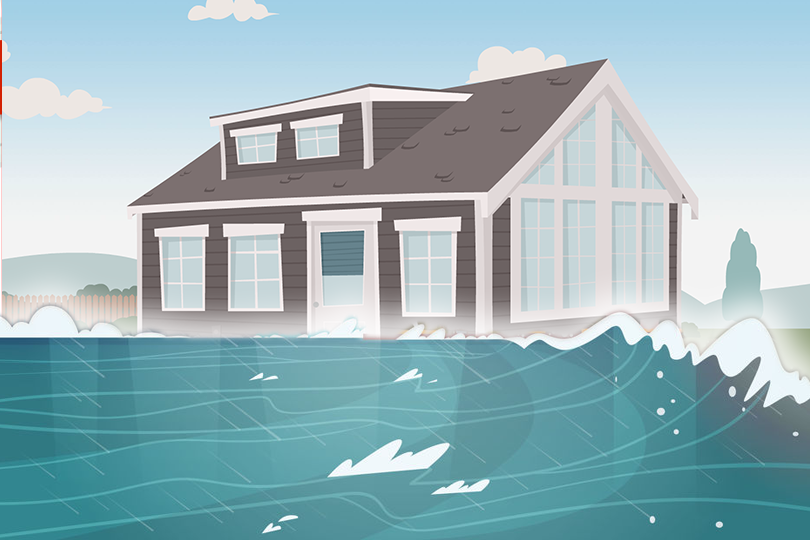Buying a Home With an FHA Loan in a Flood Zone

The FHA Loan Single-Family Lender’s Handbook, HUD 4000.1, says that homes in certain types of flood zones or Special Flood Hazard Areas (SFHA) are not eligible for FHA mortgages. These areas include, but may not be limited to SFHA Zone A, any region known as a “Special Flood Zone Area”, or Zone V.
And then there are the FHA loan rules for homes that are in a flood zone but are still eligible for an FHA mortgage, and certain exceptions to the rules excluding a home located in an SFHA.
Flood Zone Rules: Proposed or New Construction Homes
In 2022, HUD 4000.1 says that if “any portion” of a home is in an SFHA, the proposed construction or new construction home is not eligible for FHA mortgage insurance. Exceptions may be possible. They usually apply when the lender:
- Gets a FEMA Letter of Map Amendment (LOMA) or final Letter of Map Revision (LOMR) that removes the Property from the SFHA; or
- Receives a FEMA National Flood Insurance Program Elevation Certificate (FEMA Form 81-31) prepared by a licensed engineer or surveyor. HUD 4000.1 says the elevation certificate must show “the lowest floor including the basement of the residential building, and all related improvements/equipment” is constructed “at or above the 100-year flood elevation in compliance with the NFIP criteria, and insurance under the NFIP is obtained.”
HUD 4000.1 includes flood zone rules for manufactured homes, requiring them to be at or above “the 100-year return frequency flood elevation”. Barring that?
“If any portion of the dwelling, related Structures or equipment essential to the Property Value and subject to flood damage for both new and existing Manufactured Homes are located within an SFHA, the Property is not eligible for FHA mortgage insurance” unless the property is no longer considered in an SFHA.
An exception may also be possible when a licensed engineer or surveyor certifies “that the finished grade beneath the Manufactured Home is at or above the 100-year return frequency flood elevation, and insurance under the NFIP is obtained.”
Flood Zone Rules: Existing Construction
FHA loan rules for existing construction homes located in a flood zone are shorter. HUD 4000.1 says, “When any portion of the residential improvements is determined to be located within an SFHA”, then National Flood Insurance Program insurance is required.
Condo Units
The HUD 4000.1 rules governing FHA condo loans in approved projects that may be located in a flood zone, instruct the lender, “The Mortgagee must ensure the Homeowners’ Association (HOA) obtains insurance under the NFIP on buildings located within the SFHA.
The flood insurance coverage must protect the interest” of the borrowers/condo unit owners as well as the condo project as a whole. If you aren’t sure how these rules may affect your transaction, discuss your concerns with a lender.
------------------------------
RELATED VIDEOS:
Measuring Your Loan-to-Value Ratio
Monitor Your Credit Score
FHA Programs for First-Time Homebuyers

Do you know what's on your credit report?
Learn what your score means.







